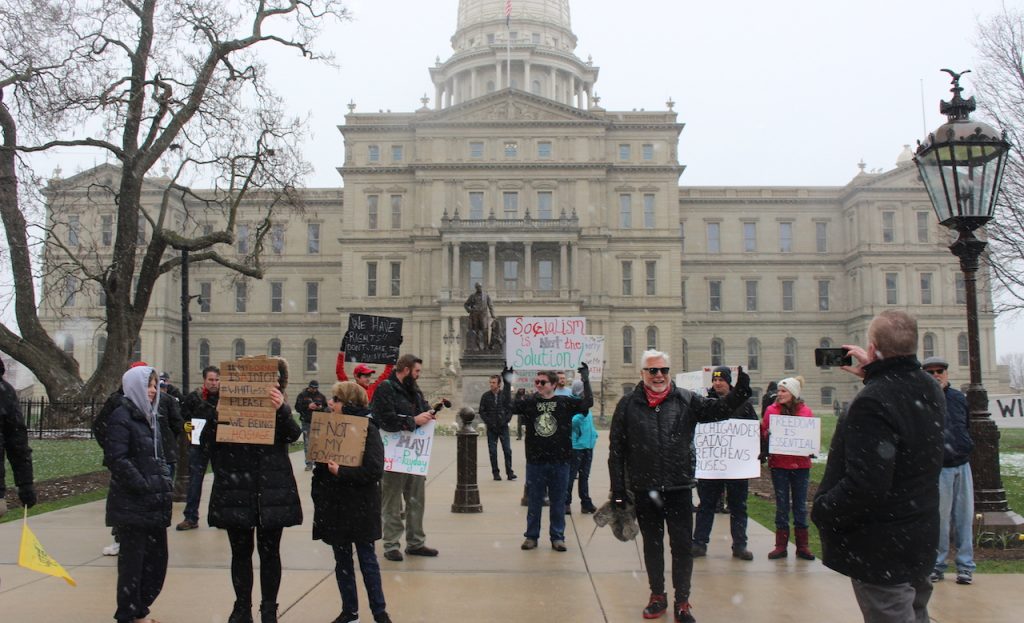More awareness of racial disparities in COVID-19 led to less fear, support of precautions among white people, research says
Psychology professor Allison Skinner-Dorkenoo says we need to recognize disparities are happening so that we can do something about them and make sure to contextualize systemic injustice.

The COVID-19 pandemic amplified something already known to be a problem — racial disparities in health care.
A new study shows the media’s coverage of those disparities might have had unintended consequences.
Allison Skinner-Dorkenoo is a psychology professor at the University of Georgia. She says the more it seemed like the coronavirus was affecting Black people, the less white people seemed to care.
“Overall, what we found was that people who were more aware of racial disparities in COVID-19 led to reduced fear of COVID-19, but also less support for safety precautions. So things like social distancing or wearing masks,” Skinner-Dorkenoo said.
Listen: Strong resistance to COVID-19 precautions tied to an awareness of racial disparities.
Russ McNamara, WDET: From a psychological perspective, is this a lack of empathy or full-on antipathy towards Black people?
Allison Skinner-Dorkenoo, University of Georgia: We do have evidence of reduced empathy. More awareness of racial disparities led to reduced empathy for people who were particularly vulnerable to COVID-19. I think that it is a little bit hard to say if it is exactly antipathy or not, although we do have some evidence that more exposure to racial disparities in some cases led to increased racial bias — but it wasn’t just specifically toward Black people. It was toward basically all of the major racial groups in the U.S. Overall, we saw a trend toward more pro-white bias after exposure to this information about COVID-19 racial disparities.

What were the attitudes of white people who were kind of already aware of existing structural racism and various disparities heading into the study?
What we found was that the people who are more aware of these structural systemic inequalities that would be leading to the racial inequalities in COVID-19 infections and deaths — those white people showed a completely different pattern. So when we look at awareness of those structural inequalities, we see that the people who are most aware of those are most fearful about COVID-19, and most supportive of safety precautions.
In Michigan, we have a governor who appointed a commission to look into pandemic racial disparities. The response to her pandemic orders was vocal and included armed protesters in the State Capitol building. It seems like the effect that you’re describing in this study sort of explains why the resistance to simple things like masking are so strong in this state.
It certainly suggests that those things are related. That part of the reason we saw such strong resistance had to do with an awareness of racial disparities. And that’s why we saw these really strong — in Michigan and elsewhere — really strong resistance. And I think when we look at that, it was mostly white people who were leading the charge against the sort of anti-masking and all of those sorts of movements.
Are there improvements to be made by the news media and politicians in the ways that racial disparities are discussed?
So I was hoping to be able to answer this question a lot better when we designed this study. Unfortunately, what we found did not help. In fact, it made it a bit worse. But I do think that perhaps educating people about the structural inequalities and really framing them as unjust. So pointing out how it’s it’s not fair; the unequal access to various testing sites is sort of playing a role in the particular context. We’re talking about pointing out the inequalities and the injustice in those inequalities could be really helpful to talking about these things. Because obviously, not talking about disparities isn’t a great solution. We need to pay attention. We need to recognize disparities that are happening so that we can do something about them. But perhaps we need to be really careful about making sure to contextualize within the broader system and pointing out the injustice in that system.
Trusted, accurate, up-to-date.
WDET strives to make our journalism accessible to everyone. As a public media institution, we maintain our journalistic integrity through independent support from readers like you. If you value WDET as your source of news, music and conversation, please make a gift today.
